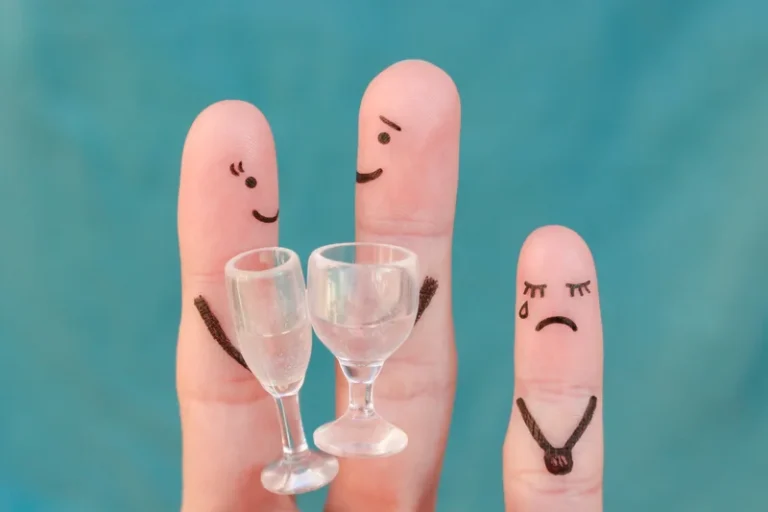
Alcohol is known to have blood-thinning effects, and combining it with medications that also thin the blood, such as anticoagulants, can increase the risk of bleeding complications. They protect you from bleeding too much if you’re injured or have surgery. Pregnancy, cancer and estrogen therapy can also put you at a greater risk of forming a clot. Blood thinners are medications that slow your body’s ability to coagulate blood, making your blood less likely to form blood clots. These medications are intended to treat blood clots in people who have them or reduce the risk of them forming.

Should You Drink Alcohol While Taking Blood Thinners?
Your gut microbiome is a hotbed of bacteria that help keep your digestive system happy and healthy. The trillions of microbes in your colon and large and small intestines are critical to proper digestion. They also help fend off inflammation and support healthy metabolism. Steatotic liver disease used to go by the name fatty liver disease. If alcohol continues to accumulate in your system, it can destroy cells and, what is Oxford House eventually, damage your organs.

Conditions

Your liver detoxifies and removes alcohol from your blood through a process known as oxidation. When your liver finishes that process, alcohol gets turned into water and carbon dioxide. Your insurance plan may cover some or all of the cost of treatment for drug or alcohol addiction. Our online health insurance verification system will estimate your in-network and out-of-network deductibles, coinsurance percentages and out-of-pocket maximums. Within 5 minutes, you’ll receive an email with these details – free of charge.
Can someone drink alcohol instead of taking a blood thinner?
- A 2017 review explains that alcohol consumption has complex and varying effects on platelets, which are small blood cells that initiate the coagulation cascade, causing blood to clot.
- It is crucial to consult with a healthcare provider to understand the potential interactions between alcohol and specific blood thinners.
- However, it is always advisable to consult a doctor or pharmacist before drinking alcohol with any new medication.
Our tailored treatment levels and top-notch professionals guide you through evidence-based therapies. Long-term heavy drinking is linked to an elevated risk of several cancers, including liver, breast, esophagus, and mouth cancers. It’s not recommended that you start drinking alcohol if you don’t normally. Having the restraint to consume only moderate amounts of alcohol may be challenging for some individuals. It’s relatively safe to consume alcohol as long as you’re in good overall health and have confirmed with a healthcare professional. According to research, moderate consumption of alcohol has been found to cause a small increase in your HDL (good) cholesterol.
- Consuming alcohol will thin your blood, making you more susceptible to heavy bleeding or bruising if you experience an injury.
- He works with patients suffering from Substance Use Disorder to evaluate their medication needs and prescribe treatments accordingly.
- Blood thinners, also known as anticoagulants, are medications that help prevent blood clots from forming or growing.
- Alcohol can amplify the effects of blood thinners, potentially leading to excessive bleeding or prolonging bleeding time.
- Drinking alcohol can sometimes be a touchy issue between patients and doctors.
Short- and long-term alcohol use has different effects on the blood. Short-term alcohol use can lead to high blood pressure and thinned blood because it hinders blood cells’ ability to clot. is alcohol a blood thinner Long-term, excessive drinking can decrease your heart’s ability to function correctly.
- Drinking alcohol while on blood thinners can strain the liver, potentially affecting its ability to metabolize medications effectively.
- If you are taking blood thinners, it is important to prioritize moderation and responsible drinking.
- Alcohol, on the other hand, can further impair the body’s ability to form blood clots.
- These work by preventing or undoing coagulation, which is how your body starts to make clots.
Can people drink alcohol while taking blood thinners?
Dr. Harb moved to New York City, choosing a career path in academic medicine as an assistant professor at the Donald and Barbara Zucker School of Medicine at Hofstra/Northwell. There, he teaches and works with cardiovascular and medical trainees as well as medical students. He is a Fellow of the American College of Cardiology (FACC) and American board-certified in general cardiology, echocardiography, and stress-testing, and nuclear cardiology. Lastly, he obtained graduate education in public health and business administration to contribute to national healthcare reform research and implementation. A 2011 literature review that included 84 prior research studies found that people who drank alcohol had a reduced number of cardiovascular and stroke deaths. Researchers also found decreased rates of coronary artery disease (CAD) and non-fatal stroke among people who drank alcohol compared to those who didn’t.
Health Categories to Explore
Short-term effects occur because of how alcohol impacts receptors in the blood. Specific blood vessels near the heart rely on receptors to keep blood pressure at a healthy level. When alcohol is in the blood, these receptors do not function as they should. Warfarin is a vitamin K antagonist, meaning it blocks the use of vitamin K — a key ingredient in the clotting process. However, a major drawback of warfarin is that it needs careful dosing and regular lab testing to prevent complications.






